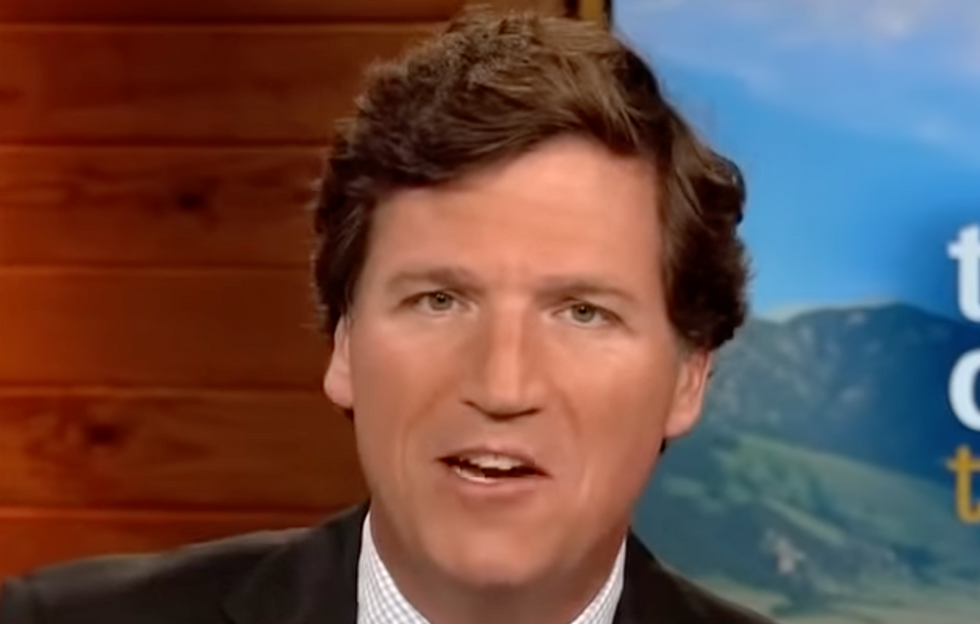The New York Times just discovered that Fox News has a Russia problem


You have to credit the Gray Lady: this is really quite the scoop. And I hesitate even to point it out, lest my mild criticism that follows be misinterpreted. So let me be clear, I’m all for American media outlets policing each other. I think it’s perfectly OK for one media outlet to call out another for bias or dissimulation. That’s what makes journalism such an integral part of our democracy, so much that its inherent value is literally enshrined in the Constitution. “Keeping them honest” should be the watchword governing all journalism.
That being said, you may wish to remain seated, because this is guaranteed to make you faint with shock. Hold onto your hats — here it comes.
As reported by the New York Times’ Stuart A. Thompson:
The narratives advanced by the Kremlin and by parts of conservative American media have converged in recent months, reinforcing and feeding each other. Along the way, Russian media has increasingly seized on Fox News’s prime-time segments, its opinion pieces and even the network’s active online comments section — all of which often find fault with the Biden administration — to paint a critical portrait of the United States and depict America’s foreign policy as a threat to Russia’s interests.
When I read that I was stone-cold flummoxed. Who could have possibly imagined? Oh, wait!
And it seems that Tucker Carlson is a Kremlin favorite. Can you believe that? They even cite examples!
“The U.S. baselessly accused Russia of spreading disinformation about biolabs in Ukraine because they later actually confirmed their existence, TV presenter Tucker Carlson told Fox News,” Radio Sputnik wrote in an article summarizing Mr. Tucker’s lengthy segment for a Russian audience.
But there’s more!
Mentions of Fox News in Russian-language media grew 217 percent during the first quarter of this year compared with the final quarter of last year, as news coverage of Ukraine increased, according to an analysis by Zignal Labs, a media tracking company that reviewed social media posts, broadcast media and online websites. CNN, which has about three times the global viewership of Fox News, according to the tracking company Similarweb, was mentioned more often but grew less, by 71 percent.
And the Times really put their nose to the grindstone to break this, having “reviewed nearly 500 Russian-language articles mentioning Fox News between July and late March, sourced from the two largest state news agencies in the country — RIA Novosti and TASS — along with dozens of articles from other Russian-language media.” Talk about due diligence!
The Times has even broken it down by category! They’ve determined that Russia now highlights Fox News stories that tend to “Blame NATO expansion,” “Buttress Conspiracy Theories” (can you imagine???) “Question the West’s goals,” and — get this — “Criticize President Biden.”
I am shocked, shocked, I tell you.
In all seriousness, we didn’t have to wait nearly two months into Russia’s invasion of Ukraine to be told they were making use of Fox News for propaganda purposes. That fact has been a staple in the media for well over a month, if not longer. More importantly, as this article, one of literally dozens from Media Matters, gamely points out, the relationship between Fox and Vladimir Putin has long been a two-way street, going back well into the Trump administration, with Fox echoing Putin’s policy on a fairly repeated basis.
But you won’t find a single word about that in the Times article. No, it’s as if Russia just suddenly discovered it had its own propaganda outlet all along.
And probably even more importantly, Mr. Thompson, for all his analytical skill, doesn’t devote a single sentence to asking why that is. Why did Fox News spend the last five years amplifying Putin talking points?
Watching Fox News openly root for Putin is a really remarkable moment in what the American Right has become, captured for posterity.https://twitter.com/atrupar/status/1372909898300854285\u00a0\u2026— Ezra Klein (@Ezra Klein) 1616173742
Exploring that question would be serious journalism. Exploring the uncomfortable question of why the Times ignored something this important, and obvious, for so long, letting relatively small, niche outlets like Media Matters do all the heavy lifting, would be even more serious journalism.
But simply reporting the data without context -- which is all the Times article really does — is not.
 WI brewery sues school boards for indulging 'Tucker Carlson-watching zombies' and ignoring scienceFox News // Tucker Carlson
WI brewery sues school boards for indulging 'Tucker Carlson-watching zombies' and ignoring scienceFox News // Tucker Carlson